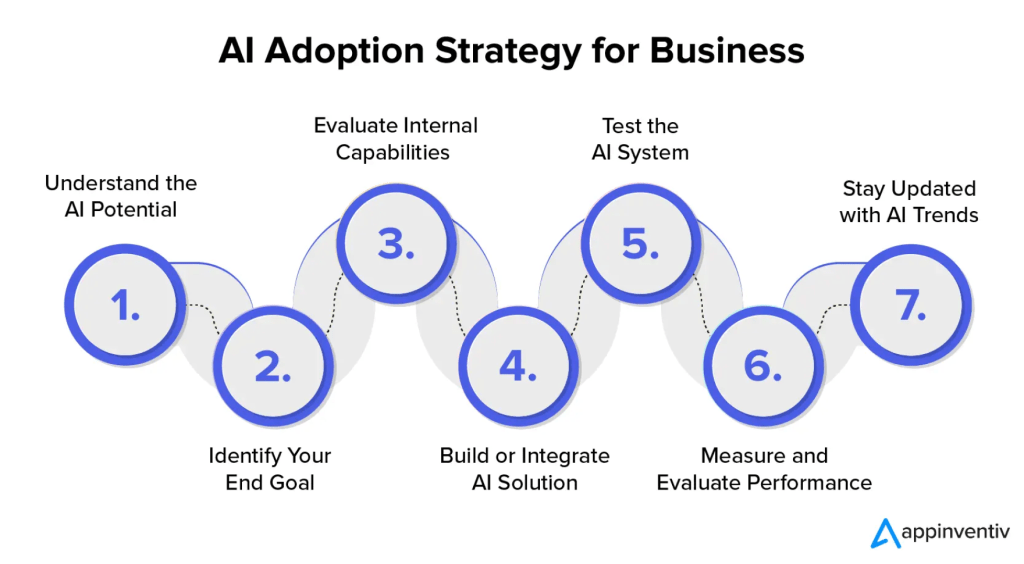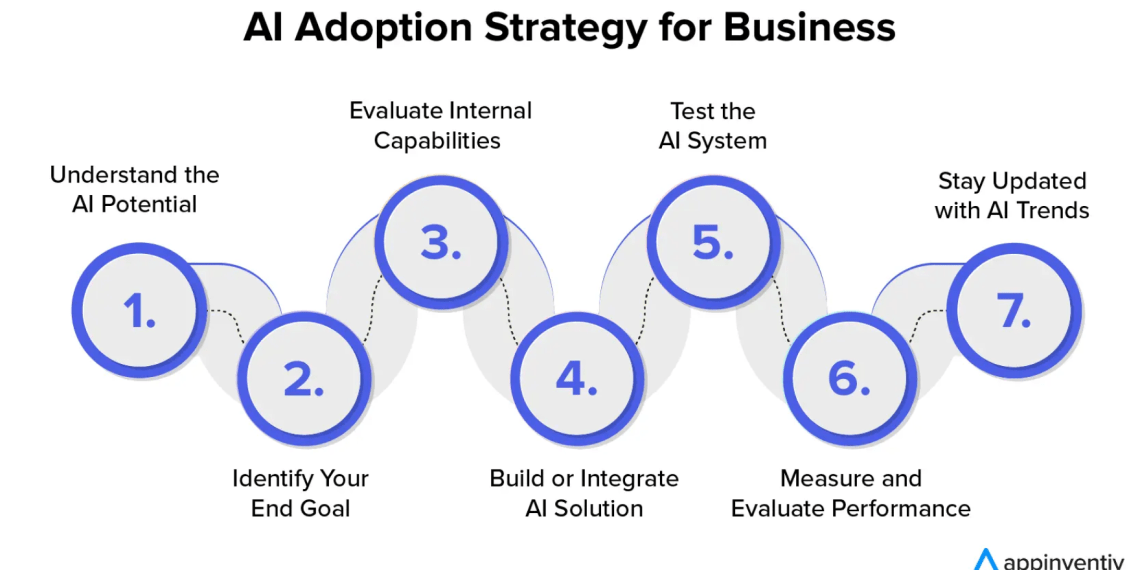Artificial Intelligence (AI) is revolutionizing the business landscape, with 90% of technology leaders already leveraging AI models and 80% planning increased investments, according to a recent EY survey. This surge in adoption highlights AI’s critical role in modern business strategy.
Key AI Applications Transforming Business Operations:
- Enhanced Customer Support AI-powered chatbots are streamlining customer interactions, with the global chatbot market projected to reach $1.25 billion by 2025. These digital assistants provide quick, personalized solutions, significantly improving customer engagement.
- Data-Driven Decision Making AI analyzes vast amounts of data to provide actionable insights, enabling more informed business decisions. From sales forecasting to competitive analysis, AI empowers leaders with crucial market intelligence.
- Operational Efficiency Automation of routine tasks through AI frees up human resources for more strategic work. For example, AI can handle basic customer queries, allowing staff to focus on complex issues and relationship-building.
- Personalized Marketing AI algorithms analyze customer behavior to deliver tailored product recommendations and marketing messages, potentially increasing conversion rates and customer loyalty.
- Improved Cybersecurity AI strengthens defenses against cyber threats by detecting unusual patterns and potential breaches faster than traditional methods.
- Price Optimization AI considers multiple factors to determine optimal pricing strategies, as seen in Uber’s dynamic pricing model and Amazon’s competitive pricing algorithms.
- Enhanced In-Store Experiences Retailers like IKEA use AI-powered ERP solutions to provide real-time product availability and gather customer data for personalized marketing.
Challenges in AI Adoption:
- Data Quality and Privacy: Ensuring clean, relevant data while maintaining security and compliance.
- Talent Shortage: Finding skilled AI professionals in a competitive market.
- Implementation Costs: Initial investment can be substantial, especially for smaller businesses.
- Organizational Resistance: Overcoming fears of job displacement and lack of understanding about AI’s potential.
Steps for Successful AI Integration:
- Identify Specific Business Goals: Determine how AI can address your unique challenges and opportunities.
- Assess Internal Capabilities: Evaluate your team’s AI readiness and consider partnering with AI experts if needed.
- Choose the Right Solution: Decide between building custom AI systems or integrating existing platforms.
- Test and Refine: Implement AI solutions gradually, measuring performance against defined KPIs.
- Continuous Learning: Stay updated on AI trends to maintain a competitive edge.
Real-World AI Success Stories:
- Alibaba uses Natural Language Processing to generate product descriptions automatically.
- Amazon’s AI-driven recommendation system personalizes product suggestions, boosting sales.
- Netflix employs AI algorithms to provide tailored content recommendations, enhancing user experience.
- Tesla leverages AI for autonomous driving capabilities, analyzing real-time sensor data.
The Future of AI in Business:
As AI technologies advance, businesses can expect increased automation, more sophisticated decision-making tools, and hyper-personalized customer experiences. AI will drive innovation across industries, from healthcare to finance, creating new opportunities for growth and efficiency.
By embracing AI strategically, businesses can gain a significant competitive advantage in today’s rapidly evolving market. The key lies in understanding AI’s potential, addressing implementation challenges, and partnering with experienced AI solution providers to tailor applications to specific business needs.










